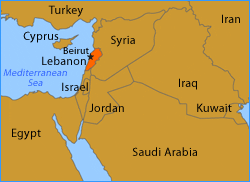Lebanon is approximately 60 to 70 percent Muslim, and most of the remaining population is Christian. (Estimates are less than precise. A national census has not been conducted in decades, in part because an official census would force a redistribution of parliamentary power.) The dominant powers are Sunni Muslims, Shia Muslims, and Maronite Christians, but the country is also home to an array of other Muslim and Christian sects. Cultural norms play a strong role in civil and criminal law: Muslim men may divorce easily, but Muslim women cannot do so without their husbands’ approval; a married woman may only get a passport with her husband’s signature; while battery is a crime, Lebanese law does not explicitly prohibit domestic violence. Also, the law permits drastically reduced sentences for “honor crimes” against women — such as when a man kills a female relative for committing adultery or having premarital sex. In Lebanon, according to the U.S. State Department, “No person has been convicted in a case legally considered an honor crime.”
Women can vote, and face no legal barriers in seeking political office. But cultural pressure is another matter: from 1992 through 2004, only three women won election to the 128-seat Parliament. Five women now sit in Parliament, and only one is Muslim. She is Bahia Hariri, who is from a highly influential Lebanese family. (Her brother, the late Rafik Hariri, was a billionaire who became prime minister, and his assassination in February 2005 sparked what some are calling the “Cedar Revolution.” Her nephew, Saad Hariri, led a successful anti-Syria coalition in the subsequent elections.) Bahia Hariri’s achievements go far beyond her pedigree; she has earned respect as a moderate voice in Parliament and was praised for her ability to calm crowds — and for bravely appearing in public — amid a spate of car bombings since her brother’s death. In March 2005, THE ECONOMIST magazine floated her name (more out of hope than expectation) as a strong candidate for prime minister. Hariri did not attain that office, but she earned another election to Parliament. Lebanon remains unstable, with frequent bombings and extraordinarily high rates of assassination; in the worst-case scenario, the country could return to the chaos of its long civil war. It also might, someday, elect Bahia Hariri as the first female prime minister in the Arab world.
- Previous: Jordan
- Next: Saudi Arabia



